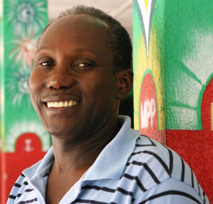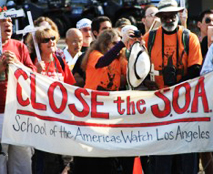Source: The Nation
Roberto Ortega tried to make a living slaughtering pigs in Veracruz, Mexico. “In my town, Las Choapas, after I killed a pig, I would cut it up to sell the meat,” he recalls. But in the late 1990s, after the North American Free Trade Agreement (NAFTA) opened up Mexican markets to massive pork imports from US companies like Smithfield Foods, Ortega and other small-scale butchers in Mexico were devastated by the drop in prices.
“Whatever I could do to make money, I did,” Ortega explains. “But I could never make enough for us to survive.” In 1999 he came to the United States, where he again slaughtered pigs for a living. This time, though, he did it as a worker in the world’s largest pork slaughterhouse, in Tar Heel, North Carolina. read more




